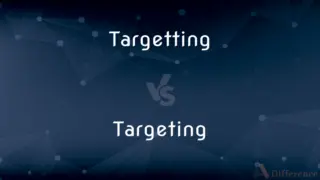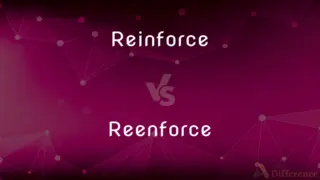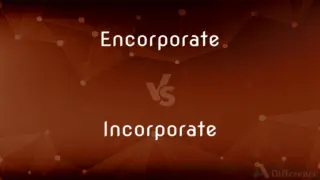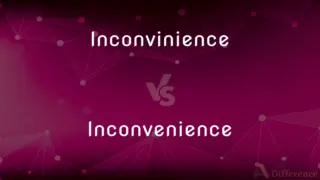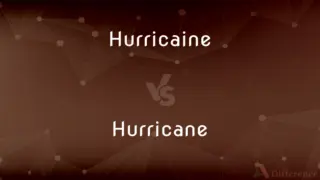Colateral vs. Collateral — Which is Correct Spelling?
Edited by Tayyaba Rehman — By Fiza Rafique — Updated on March 28, 2024
"Colateral" is an incorrect spelling; the correct form is "collateral," which refers to something pledged as security for loan repayment.
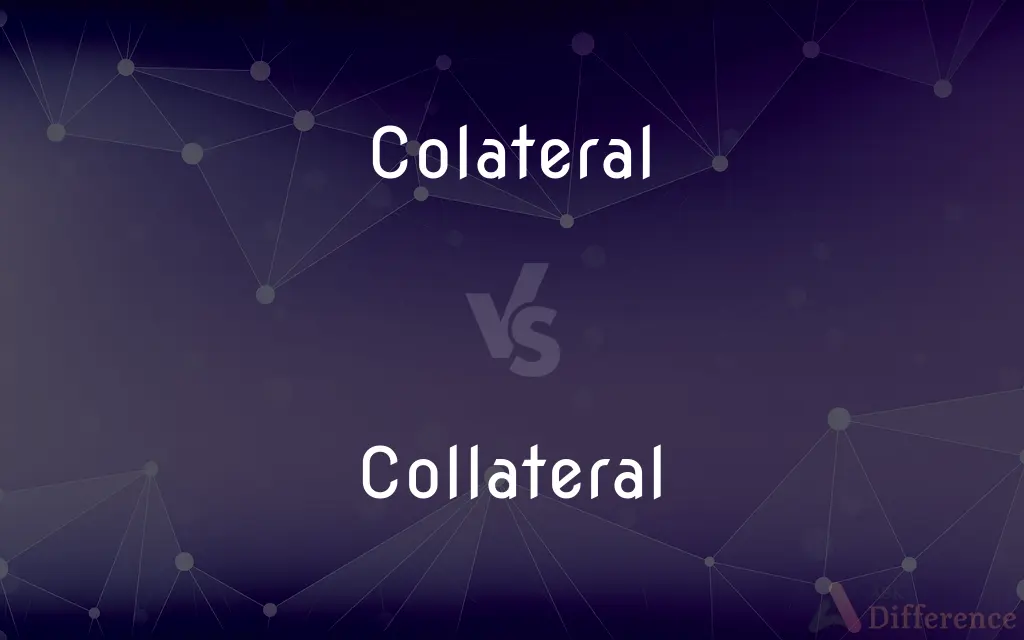
Table of Contents
Which is correct: Colateral or Collateral
How to spell Collateral?

Colateral
Incorrect Spelling

Collateral
Correct Spelling
ADVERTISEMENT
Key Differences
"Collateral" has a "double L" just like "ball" which can be a collateral in a game of loans.
Focus on "collar" in "collateral," which is something tangible, just like collateral assets.
Picture the word "call" in "collateral" to remember the double L.
"Collateral" also relates to "parallel," both having double L's.
"Collateral" has two sides (two 'L's) just like it serves as security on two sides of a deal.
ADVERTISEMENT
How Do You Spell Collateral Correctly?
Incorrect: Their colateral was evaluated before the loan was approved.
Correct: Their collateral was evaluated before the loan was approved.
Incorrect: She had to provide colateral to secure the financing she needed.
Correct: She had to provide collateral to secure the financing she needed.
Incorrect: Without enough colateral, the bank refused the loan.
Correct: Without enough collateral, the bank refused the loan.
Incorrect: He offered his car as colateral for the loan.
Correct: He offered his car as collateral for the loan.
Incorrect: The business owner used his property as colateral for the business loan.
Correct: The business owner used his property as collateral for the business loan.
Collateral Definitions
Something pledged as security for a loan's repayment.
The bank required a house as collateral for the mortgage.
Related but secondary; indirect.
The collateral benefits of the project were unexpected.
Descended from the same stock but in a different line.
They were collateral relatives, sharing a great-grandparent.
Situated or running side by side; parallel.
Coinciding in tendency or effect; concomitant or accompanying.
Serving to support or corroborate
Collateral evidence.
Of a secondary nature; subordinate
Collateral target damage from a bombing run.
Of, relating to, or guaranteed by a security pledged against the performance of an obligation
A collateral loan.
Having an ancestor in common but descended from a different line.
Property acceptable as security for a loan or other obligation.
A collateral relative.
Parallel, along the same vein, side by side.
Corresponding; accompanying, concomitant.
Being aside from the main subject, target, or goal.
Although not a direct cause, the border skirmish was certainly a collateral incitement for the war.
Collateral damage
(genealogy) Of an indirect ancestral relationship, as opposed to lineal descendency.
Uncles, aunts, cousins, nephews and nieces are collateral relatives.
(finance) Relating to a collateral in the sense of an obligation or security.
(finance) Expensive to the extent of being paid through a loan.
Coming or directed along the side.
Collateral pressure
Acting in an indirect way.
Having the phloem and xylem adjacent.
(finance) A security or guarantee (usually an asset) pledged for the repayment of a loan if one cannot procure enough funds to repay.
A collateral (not linear) family member.
(anatomy) A branch of a bodily part or system of organs.
Besides the arteries blood streams through numerous veins we call collaterals.
(marketing) Printed materials or content of electronic media used to enhance sales of products (short form of collateral material).
(anatomy) A thinner blood vessel providing an alternate route to blood flow in case the main vessel becomes occluded.
(archaic) A contemporary or rival.
Coming from, being on, or directed toward, the side; as, collateral pressure.
Related to, but not strictly a part of, the main thing or matter under consideration; hence, subordinate; not chief or principal; as, collateral interest; collateral issues.
That he [Attebury] was altogether in the wrong on the main question, and on all the collateral questions springing out of it, . . . is true.
Tending toward the same conclusion or result as something else; additional; as, collateral evidence.
Yet the attempt may giveCollateral interest to this homely tale.
Descending from the same stock or ancestor, but not in the same line or branch or one from the other; - opposed to lineal.
Collateral security; that which is pledged or deposited as collateral security.
A security pledged for the repayment of a loan
Descended from a common ancestor but through different lines;
Cousins are collateral relatives
An indirect descendant of the Stuarts
Serving to support or corroborate;
Collateral evidence
Accompaniment to something else;
Collateral target damage from a bombing run
Situated or running side by side;
Collateral ridges of mountains
A side branch, as of a blood vessel or nerve.
The collateral arteries help in blood circulation.
Serving to support or reinforce; accompanying.
Collateral evidence was used in the trial.
Collateral Meaning in a Sentence
Having collateral gives the lender a sense of security.
Banks usually require collateral before they approve a large loan.
If you fail to repay the loan, the bank can take your collateral.
Interest rates on loans can be lower if you offer collateral.
Collateral can make it easier to get a loan if you have a low credit score.
Collateral can be anything of value, like a car or a piece of land.
Some people use their jewelry as collateral for short-term loans.
Your collateral is assessed to determine its value.
For small businesses, equipment can sometimes serve as collateral.
Collateral agreements must be clear and understood by all parties involved.
Collateral helps lenders offset the risk of lending money.
Failing to repay a secured loan means the lender can sell your collateral.
Collateral loans are common for large purchases, like homes or cars.
Collateral is a key factor in securing a mortgage for a home.
Understanding the terms of using your assets as collateral is important.
Always consider the long-term implications of using valuable assets as collateral.
Before offering something as collateral, know its current market value.
Life insurance policies can also be considered as collateral for a loan.
Knowing the risks involved with putting up collateral is crucial.
Lenders have different requirements for what they accept as collateral.
Offering collateral can speed up the loan approval process.
If the collateral depreciates, the lender might require additional security.
It's important to understand what can be used as collateral before applying for a loan.
Sometimes, savings accounts or stocks can be used as collateral.
Your ability to offer collateral can greatly affect your loan terms.
Common Curiosities
Why is it called collateral?
It's derived from medieval Latin "collateralis," from "col-" meaning ‘together with’ + "latus" meaning 'side.'
What is the verb form of collateral?
There isn't a direct verb form of "collateral."
Which conjunction is used with collateral?
Collateral doesn't have a specific conjunction associated; it would depend on the sentence context.
What is the root word of collateral?
The root is from medieval Latin "collateralis."
Which vowel is used before collateral?
The vowel "a" is used before the -ral in collateral.
Which article is used with collateral?
Both "a" and "the" can be used with collateral, depending on context.
Is collateral an adverb?
No, collateral is not an adverb.
What is the pronunciation of collateral?
The pronunciation of collateral is /kəˈlætərəl/.
Is collateral an abstract noun?
No, while its concept can be abstract, it often refers to tangible assets.
Is collateral a negative or positive word?
It is neutral; however, its connotation depends on context.
What is the singular form of collateral?
The singular form is "collateral."
Is collateral a vowel or consonant?
"Collateral" is a word composed of both vowels and consonants.
Is collateral a countable noun?
It can be countable when referring to multiple types of security assets or agreements.
What is the plural form of collateral?
The plural form is "collaterals."
Is collateral a noun or adjective?
Collateral can be both a noun and an adjective.
How do we divide collateral into syllables?
Collateral is divided as col-lat-er-al.
What is a stressed syllable in collateral?
The stressed syllable is "lat" in collateral.
What is another term for collateral?
Another term for collateral (financial context) is "security."
Which preposition is used with collateral?
"Against" is often used, as in "collateral against a loan."
Is the collateral term a metaphor?
Not inherently, but it can be used metaphorically in some contexts.
What is the third form of collateral?
Again, it remains "collateral."
Is the word collateral imperative?
No, "collateral" is not an imperative.
What part of speech is collateral?
Collateral can be both a noun and an adjective.
What is the second form of collateral?
Nouns and adjectives don’t have verb tenses; it remains "collateral."
How is collateral used in a sentence?
"He provided his car as collateral for the personal loan."
How many syllables are in collateral?
Collateral has four syllables.
Is collateral a collective noun?
No, collateral is not a collective noun.
What is the opposite of collateral?
The opposite could be "unsecured" when speaking of loans.
Which determiner is used with collateral?
Determiners like "this," "that," "my," "her," "his," "a," and "the" can be used with collateral.
What is the first form of collateral?
As a noun/adjective, it remains "collateral."
Share Your Discovery
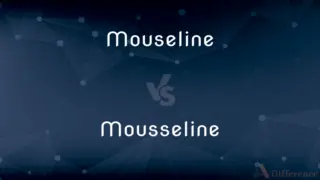
Previous Comparison
Mouseline vs. Mousseline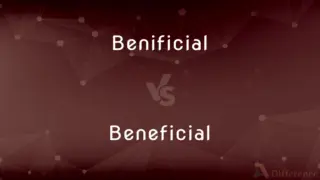
Next Comparison
Benificial vs. BeneficialAuthor Spotlight
Written by
Fiza RafiqueFiza Rafique is a skilled content writer at AskDifference.com, where she meticulously refines and enhances written pieces. Drawing from her vast editorial expertise, Fiza ensures clarity, accuracy, and precision in every article. Passionate about language, she continually seeks to elevate the quality of content for readers worldwide.
Edited by
Tayyaba RehmanTayyaba Rehman is a distinguished writer, currently serving as a primary contributor to askdifference.com. As a researcher in semantics and etymology, Tayyaba's passion for the complexity of languages and their distinctions has found a perfect home on the platform. Tayyaba delves into the intricacies of language, distinguishing between commonly confused words and phrases, thereby providing clarity for readers worldwide.


